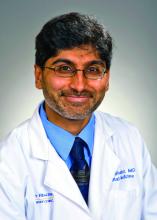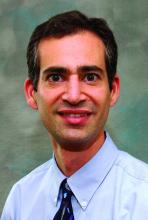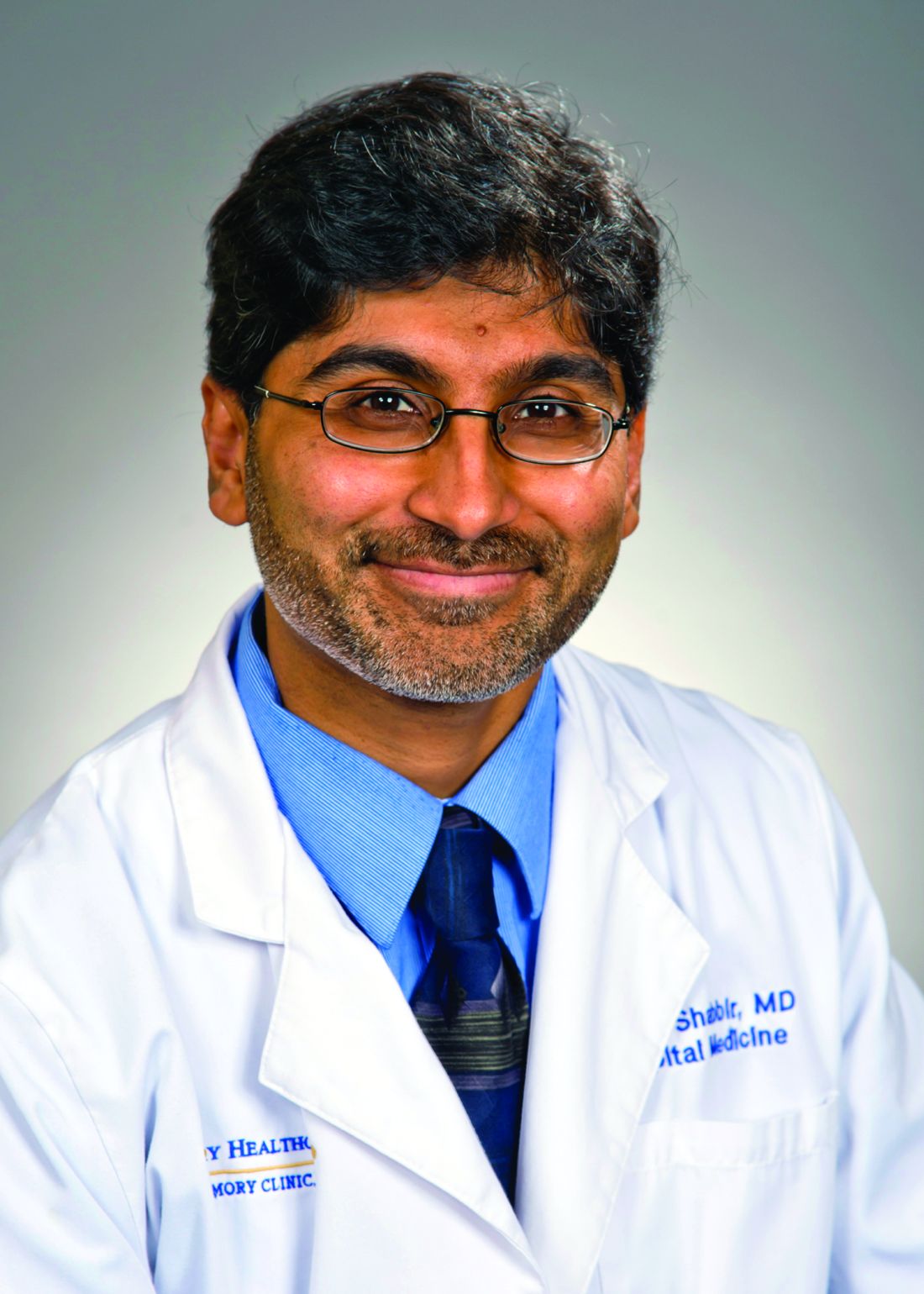User login
A novel medication reconciliation program that hospitalists might adopt in their own centers will be featured Wednesday during a 4:15 p.m. session, “Medication Reconciliation Implementation: A Hospital Case.”
Dr. Shabbir’s hospital was one of six that participated in the nationwide Multi-Center Medication Reconciliation Quality Improvement Study (MARQUIS), an effort to develop a more accurate and safe med-rec process when patients enter and leave the hospital. Among other interventions, the hospitals employed pharmacy technicians in the newly created role of “medication reconciliation assistants,” responsible for taking a best possible medication history. These technicians had expertise in recognizing frequently prescribed pills and verified patient medication lists with at least two sources (i.e., local pharmacies, nursing homes, doctor’s offices). They entered the information in patients’ electronic health records and, if they noticed discrepancies, alerted the hospitalist attending.
The service “gave me, as a physician, a sigh of relief and a confidence in that history,” Dr. Shabbir said, noting that it also saved time. “In the age of polypharmacy and medication complexity, this is really new work that we didn’t have anybody to do until we had this program.”
A med-rec assistant program is worth considering, Dr. Shabbir said, as it has “the potential to impact the quadruple aim – patient outcomes, patient experience, joy in work, and lower costs.”
“Hospitalists may not appreciate the extent to which quality is often lacking in medication reconciliation,” he said. “We will teach hospitalists how to make a case for a good medication reconciliation program at their own medical centers. Not having a good history as a hospitalist – and trying to obtain it when a patient is moved up to the floor [and] the family has left with the medications, if they even were brought in – and having out-of-date medication lists is really troubling. This is something that affects anyone who’s admitting, following, or discharging a patient.
“It’s a big deal. This program perhaps will give some ideas and guidance. Hopefully, if it’s replicated, it can prevent harm to patients. There’s a very compelling case to be made for these programs from a business point of view.”
Medication Reconciliation Implementation: A Hospital Case
Wednesday, 4:15–5:20 p.m.
A novel medication reconciliation program that hospitalists might adopt in their own centers will be featured Wednesday during a 4:15 p.m. session, “Medication Reconciliation Implementation: A Hospital Case.”
Dr. Shabbir’s hospital was one of six that participated in the nationwide Multi-Center Medication Reconciliation Quality Improvement Study (MARQUIS), an effort to develop a more accurate and safe med-rec process when patients enter and leave the hospital. Among other interventions, the hospitals employed pharmacy technicians in the newly created role of “medication reconciliation assistants,” responsible for taking a best possible medication history. These technicians had expertise in recognizing frequently prescribed pills and verified patient medication lists with at least two sources (i.e., local pharmacies, nursing homes, doctor’s offices). They entered the information in patients’ electronic health records and, if they noticed discrepancies, alerted the hospitalist attending.
The service “gave me, as a physician, a sigh of relief and a confidence in that history,” Dr. Shabbir said, noting that it also saved time. “In the age of polypharmacy and medication complexity, this is really new work that we didn’t have anybody to do until we had this program.”
A med-rec assistant program is worth considering, Dr. Shabbir said, as it has “the potential to impact the quadruple aim – patient outcomes, patient experience, joy in work, and lower costs.”
“Hospitalists may not appreciate the extent to which quality is often lacking in medication reconciliation,” he said. “We will teach hospitalists how to make a case for a good medication reconciliation program at their own medical centers. Not having a good history as a hospitalist – and trying to obtain it when a patient is moved up to the floor [and] the family has left with the medications, if they even were brought in – and having out-of-date medication lists is really troubling. This is something that affects anyone who’s admitting, following, or discharging a patient.
“It’s a big deal. This program perhaps will give some ideas and guidance. Hopefully, if it’s replicated, it can prevent harm to patients. There’s a very compelling case to be made for these programs from a business point of view.”
Medication Reconciliation Implementation: A Hospital Case
Wednesday, 4:15–5:20 p.m.
A novel medication reconciliation program that hospitalists might adopt in their own centers will be featured Wednesday during a 4:15 p.m. session, “Medication Reconciliation Implementation: A Hospital Case.”
Dr. Shabbir’s hospital was one of six that participated in the nationwide Multi-Center Medication Reconciliation Quality Improvement Study (MARQUIS), an effort to develop a more accurate and safe med-rec process when patients enter and leave the hospital. Among other interventions, the hospitals employed pharmacy technicians in the newly created role of “medication reconciliation assistants,” responsible for taking a best possible medication history. These technicians had expertise in recognizing frequently prescribed pills and verified patient medication lists with at least two sources (i.e., local pharmacies, nursing homes, doctor’s offices). They entered the information in patients’ electronic health records and, if they noticed discrepancies, alerted the hospitalist attending.
The service “gave me, as a physician, a sigh of relief and a confidence in that history,” Dr. Shabbir said, noting that it also saved time. “In the age of polypharmacy and medication complexity, this is really new work that we didn’t have anybody to do until we had this program.”
A med-rec assistant program is worth considering, Dr. Shabbir said, as it has “the potential to impact the quadruple aim – patient outcomes, patient experience, joy in work, and lower costs.”
“Hospitalists may not appreciate the extent to which quality is often lacking in medication reconciliation,” he said. “We will teach hospitalists how to make a case for a good medication reconciliation program at their own medical centers. Not having a good history as a hospitalist – and trying to obtain it when a patient is moved up to the floor [and] the family has left with the medications, if they even were brought in – and having out-of-date medication lists is really troubling. This is something that affects anyone who’s admitting, following, or discharging a patient.
“It’s a big deal. This program perhaps will give some ideas and guidance. Hopefully, if it’s replicated, it can prevent harm to patients. There’s a very compelling case to be made for these programs from a business point of view.”
Medication Reconciliation Implementation: A Hospital Case
Wednesday, 4:15–5:20 p.m.


